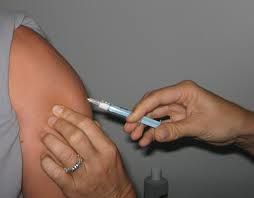Measles Outbreak In Texas: Is A Fear Of The MMR Vaccine Causing A Surge In Infections?

A measles outbreak in Texas has sent doctors across the state into high alert for patients who show signs of infection. The Texas Department of State Health Services has asked people to seek immunization after six new measles cases were reported this month, making 11 cases for the year so far.
Prior to this year, six cases were reported in 2011 but no new cases were reported in 2012.
Measles, also known as rubeola or mumps, is a respiratory disease resulting from a virus. Signs and symptoms of the disease include an identifiable red rash, cough, runny nose, and a fever above 101 °F.
Showing just how contagious the virus can be, around 90 percent of the people close to someone infected will also become infected. New measles cases are usually attributed to a trip overseas to Europe or Asia. In 2000, the Centers for Disease Control and Prevention (CDC) verified the elimination of the disease within U.S. borders.
Due to a small contention regarding recent studies, the measles, mumps, and rubella (MMR) vaccine has been met with a great deal of skepticism by parents who believe their children could develop autism from the vaccine itself.
The fearsome link between the MMR vaccine and autism development was raised in 1998 when a study published in the Lancet first shed light on this possibility. The research, headed up by former British surgeon and medical researcher Andrew Wakefield, was retracted by the British medical journal after 10 of his 12 co-authors withdrew their support for the study.
According to the CDC, three to four million people in the United States were infected with measles each year before the onset of the measles vaccination. A total of 400 to 500 cases resulted in death, with 48,000 hospitalizations and 1,000 individuals who developed chronic disability from measles encephalitis.
The MMR vaccine has been available and affordable in the U.S. since it was first approved by the Food and Drug Administration in 1971. The Advisory Committee on Immunization Practices recommends one dose of the vaccine at 12 to 15 months old and a second dose at four to six years old.
Read more: Autism And Vaccines: Fears Persist Despite Overwhelming Evidence



























